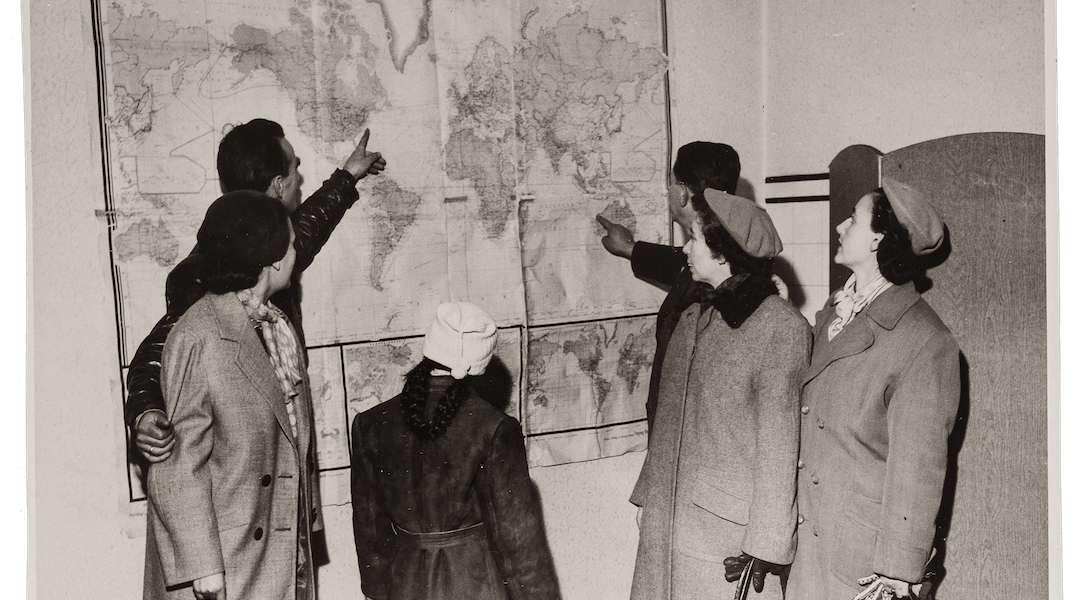Danon Sets Agenda for Rising Right Wing

Image by getty images

New Face of Right: Danny Danon is the young face of Israel?s right wing. He is proud of opposing Palestinian statehood and unapologetic about new laws that some say undermine democracy. Image by getty images
Lawmaker Danny Danon pauses during an interview to scribble an important note to himself. A question about a derogatory portrayal of him in the left-leaning daily newspaper Haaretz gave him an idea: “I must remember to use this article in my campaign.”
In the piece in question, columnist Gideon Levy wrote that Danon “will be big, the sugar of the Israeli right.” But Levy insisted that Danon “doesn’t know a thing about democracy” and likened him to Senator Joseph McCarthy. Danon was exultant: An attack by a prominent member of the “extreme radical left,” the lawmaker said, is proof that he’s on the right track.
Danon is the best known of the Israeli right’s new fantastic four. The driving force behind the recent wave of Knesset legislation that has shocked many Israelis who fear it could undermine democracy — including President Shimon Peres, who has said that some bills make him “ashamed” — has been four Knesset freshmen: Yariv Levin, Tzipi Hotovely, Ofir Akunis and Danon.
All are members of the ruling Likud party, but they take positions significantly to the right of the party leader, Prime Minister Benjamin Netanyahu — and pride themselves on doing so.
“I see myself whispering in his right ear, telling him where he should stay,” Danon, the most prominent of them, said on December 20, shortly after submitting a bill to precondition driver’s license applications on an oath of loyalty to the state.
Netanyahu is open, with reservations, to the idea of a two-state solution, but the Likud freshmen are resolute that there must never be a Palestinian state. And while this is a classic Likud position, revised only in 2009 by Netanyahu, observers say that their domestic agenda is new to Israel and to their party.
“The Likud was a lot more liberal,” said Haifa University political scientist Doron Navot, referring to the party’s historic domestic positioning. On internal issues, the legacy of the Likud’s founder and longtime leader, Menachem Begin, was a “strong supreme court and strong minority rights,” he said. “There is a new idea of what democracy means — the rule of the majority, and that’s it.”
Among the measures that these young legislators are pushing —and that critics say threaten democratic discourse — are a law imposing sanctions on Israelis who speak out in support of boycotting settlements and a bill to increase financial penalties for libel by six-fold, including cases in which the plaintiff cannot prove any damages. Major Israeli media figures protest that the libel law will cripple reporting in Israel. Both measures enjoy the backing of Netanyahu. Another bill that the four back would heavily tax donations to not-for-profit groups whose work is deemed to be “political.” The bill would also outlaw donations to such nongovernmental organizations from foreign governments. That measure, which is likely to affect a wide swath of groups engaged in human rights and social advocacy, is expected to receive Cabinet approval soon.
Sometimes the young Likud hawks overstep Netanyahu’s lines. The prime minister is expected to shun Danon’s new driver’s license loyalty oath bill, and in late November he refused to back a bill to limit petitions to the high court against the state by activist groups. “Such a law will not pass a government that I head,” he said.
These days, the Likud four are constantly in the news. Levin was the proponent of the toughening of libel laws. Hotovely, Israel’s youngest lawmaker at 33, co-sponsored a bill to prevent demolitions of illegal Israeli Jewish outposts on the occupied West Bank. And Akunis caused consternation after saying on Israeli television that McCarthy was “right in every word” — though he later clarified that he was referring to McCarthy’s diagnosis that several Soviet agents had infiltrated America, not to the senator’s false public statements and his umproven accusations against various figures. But the most attention has gone to Danon, a master of social and conventional media who has been heard, seen and read commenting on everything from candy sales at supermarkets to noise “pollution” from mosques’ prayer calls.
While Danon does not explicitly say he has his sights on the Likud leadership, he suggests that every lawmaker wants to be prime minister. He does not explicitly say that he will instigate a Likud rebellion if Netanyahu is ever close to agreeing a two-state solution. Instead, he cryptically says things will never get that far.
Danon, who is 40, has been politically active since his youth. He smiles a lot, dresses more formally than most Israeli lawmakers — invariably wearing a suit and tie — and sports immaculately styled jet-black hair that, notably, is not covered by a yarmulke.
“Today we see that a lot of people from the left are confused because they are used to debating right-wing leaders who were considered to be radical, and they used to have a yarmulke and sandals and give quotes from the Bible all the time,” he said, speaking in his signature excitable-but-thoughtful intonation in his Knesset office. “All of a sudden they see young, educated politicians who know the ideology, who know how to speak and present a case to the Israeli public, with very strong ideology, know how to pass legislation, and they don’t like it because they would prefer to see us yelling, demonstrating and not actually coming to the boardroom and changing the legislation or the direction of the government.”
Danon claims that Israeli democracy is premised on the notion that there is a “line” that must not be crossed — that the apparatus of democracy must not be used to undermine the state’s Jewish character. This is his justification for his citizenship oath bill: to combat what he calls “incitement” within the Israeli-Arab minority. His critics, who say that he is breaking with Likud tradition, “are using Menachem Begin and [Likud ideological icon Ze’ev] Jabotinsky for their purposes….Both of them would not allow forces in the democracy to use democracy against the Jewish people.”
But inconveniently for Danon, Begin’s son Benny, a Likud lawmaker who is widely seen as his father’s ideological heir, is among the critics. He wrote in a column in the rightist daily Israel Hayom that some of the current domestic legislation could harm Likud in the polls. “Being a ruling party requires understanding that there are limits to power, and recognizing the rights of the minority,” he declared. Nevertheless, Danon insists that there is no innovation, ideologically speaking, in what he and the other young Likud hawks are doing — only in the fact that they are effectively communicating and legislating according to “the Likud DNA.”
Discussing the implications of his agenda on democracy, Danon turned the left’s analysis on itself: It cannot bemoan a shift to the right in Israeli society and then claim that lawmakers like him are undemocratic for acting on the public’s wishes. “I think this process is democratic; we are representing the votes we got,” he said.
But even if the legislative process reflects the will of a democratically elected majority, do the laws that he proposes themselves respect democracy? He insists they actually strengthen it in the face of danger. When left-wing organizations use the high court to challenge the state, they are using it as a “shortcut” to undermine an elected government and are therefore, he said, “bypassing democracy.” And when foreign governments donate large sums to “political” NGOs they buy undue influence in Israeli politics, he said, defending the NGO funding bill.
Critics charge that Danon himself has no problem with seeking to influence American politics. Last September he stood shoulder to shoulder with Texas Governor Rick Perry at a boisterous Brooklyn campaign rally for the Republican presidential candidate as Perry launched a fusillade of attacks on President Obama. From the podium, Danon added some criticism of his own and an apparent endorsement: “We do want to see strong leadership that understands the issues and the challenges, and I want to thank Governor Perry for taking such bold decisions in support of Israel.”
Asked about this, Danon responded, “I have always agreed to meet with supporters of Israel from both political parties in the U.S…..This is fundamentally different than foreign governments paying for internal Israeli political activity.”
Danon has a strong international presence, speaking frequently to foreign media as well as posting on Twitter and Facebook in English. He is well-known among Diaspora Jewry; when he was in his early 20s he was an emissary to Florida for his youth movement, the right-wing, Zionist Beitar, and went on to become the organization’s international chair. Today he chairs World Likud. But he is resolute that international approval, whether from the American Jewish community or from policymakers, should not determine Israel’s actions. “I think we should try to minimize international criticism but we should not run our lives according to international criticism,” he said. “It’s better to get a Goldstone Report if the children of Sderot can sleep quietly. It’s better to get another Goldstone Report if we need to go back into Gaza in a year or two, and the same with the Arab Israelis.”
While many observers say that Danon and the other young Likud hawks represent a new direction in Likud, Hebrew University political scientist Abraham Diskin, an expert on the party, disagrees. He said, “Everybody [in Likud] has moved to the center, and Danny Danon is saying ‘Forget about this, it’s not going to happen.’” In his analysis, Danon “represents those who said in the past that there is no chance for peace, so let’s stick to what they see as the basic ideas of Zionism. I think he represents what was in the past.”
Contact Nathan Jeffay at [email protected].
















